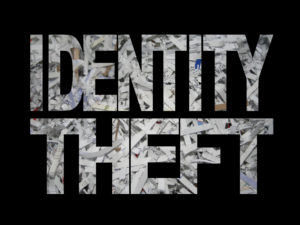
Scammers are everywhere, and they’re continually coming up with new and more sophisticated ways to separate you from your money.
Recognizing this growing threat to consumers, in 2019 the federal government earmarked $15 billion for cybersecurity issues spread out across more than 70 agencies. The funds are being used to stop government security breaches, ransomware attacks, and various types of fraud that can impact millions of Americans.
This doesn’t even come close to fully addressing the problem, but it does help to point out the magnitude of a rapidly growing problem.
Vigilance is the Key
Scammers can come at you a thousand different ways. Your identity can be stolen as part of a significant data breach. A con man could rip you off in a Craigslist transaction. A thief could insert a card skimmer in the pump at your local gas station. A phony online retail site could induce you with a “too good to be true” deal that you fall for.
That’s why you need to adopt an overall philosophy about how you protect your identity and your financial information. Develop a set of guidelines that you won’t violate under any circumstances. Don’t give out personal information over the phone. Do some digging before you buy online. Make sure the government agency or company you’re dealing with is who they say they are.
Also, check your credit report regularly and be on the lookout for bills you don’t recognize that come to you in the mail.
If you set your radar on high and let your intuition play a part in protecting you, you’ll be in far better shape against scammers who want to victimize you.
Be on Alert for These Consumer Scams
Let’s take a closer look at some of the consumer scams you could encounter.
Phishing. Phishing involves a scammer passing themselves off as a trusted entity such as a bank or mortgage company. Their goal is to mislead you into passing your personal information to them, which they’ll then use to commit crimes.
Malware. If you visit a lot of websites, sooner or later you may fall prey to malicious software loaded on your computer. The software will scan your entire hard drive for information that could end up costing you a lot of money.
The Prepayment Scam. You’re asked to pay upfront fees to process contest winnings, loans, grants, credit cards, or an investment.
The Charity Scam. You’re contacted by phone, online, by email, or regular mail, asking you to donate to a charity. This is particularly prevalent after a large natural disaster such as an earthquake or hurricane. Stick to mainstream charities such as the American Red Cross or those that have been thoroughly vetted. If you don’t recognize the organization, do your homework first.
The Employment Scam. You’re looking for a job, and you’re extended an offer, but you must first pay for job-related expenses. You could be tricked into buying products up front that you would sell once you begin the job.
Extortion. This is particularly heinous because it involves threatening your life or the lives of your family members. Vulnerable populations are often at risk, including seniors and undocumented immigrants, among others.
Identity Theft. Thieves pose as you using your personal banking information such, Social Security number, or credit card info. These types of identity theft are far reaching and include opening new accounts, making purchases with your information, obtaining medical coverage, filing tax returns, and countless other ways.
The Military Scam. Fraudsters may pose as a member of the armed forces and solicit you for donations for their fake cause.
The Lonely Hearts Scam. With the rise of online dating, you could meet someone online, fall prey to their smooth-talking charms and end up having your bank account emptied before you know it.
The Social Media Scam. Hackers will access your personal information on Facebook, Twitter, Instagram, and other platforms and use what they find to rip you off. They may also be able to access personal information from the people in your network or make highly targeted pitches for money to friends and family.
Telemarketing Scam. If you don’t screen your calls, unscrupulous telemarketers could contact you with “free if you buy today” or “extremely limited time” offers. This high-pressure squeeze tactic can have the unsuspecting transferring money or giving up personal information.
The Children’s Social Security Card Scam. Thieves can obtain the Social Security numbers of children who don’t have any credit history. Their credit reports are seldom monitored, and a scammer can do a lot of damage before any irregularities are discovered as the child gets older.
The Mortgage Scam. Distressed homeowners are often targeted with foreclosure rescue scams, phony loan modifications, and equity skimming. And worse, actual real estate and mortgage professionals may take part due to their intimate knowledge of the home loan industry. It’s easy to get fooled.
Debt Collection Scam. A fraudster may call you posing as a collection agency to collect a debt that you may or may not owe. They may threaten you or put pressure on you threatening legal action to get you to reveal your account information as a means of settling.
What to do if You’ve Been Scammed
Report it. Don’t feel embarrassed if that there’s no hope of recovering what you lost. Scammers hope you’ll think that getting your money back is futile. Don’t fall into this trap. Reporting a scam helps law enforcement officials establish accurate statistics. In turn, this provides direction on where to devote resources. Spotting trends also makes it easier to alert other agencies on what to look out for. Many criminal enterprises extend throughout the country and internationally. If you’re not sure where to start, call your local police department for direction.
Match the enforcement agency to the crime. Some scams are local in nature; others can have far-reaching geographic implications. For scams involving goods and services, start with your state attorney general’s office or state consumer protection agencies. If you’re a scam victim that violates federal law, then you can go to a national enforcement agency. Start with the Federal Trade Commission or the FBI’s Internet Crime Complaint Center. If you are a victim of identity theft, the FTC has a separate website to assist you. For financial crimes, go to the Financial Industry Regulatory Authority to file a complaint.
Accept that you are a crime victim. Do not beat yourself up for feeling gullible. Highly sophisticated thieves have scammed millions of Americans. Focus on taking productive steps going forward, including shoring up access to your personal information. Become a hard target, and it’s more likely bad guys will move on. Work with friends and family to make sure they don’t become victims as well.
 Protect Yourself from Tax-Related Identity Theft Before it is Too Late
Protect Yourself from Tax-Related Identity Theft Before it is Too Late  Guarding Against IRS and Social Security Scams
Guarding Against IRS and Social Security Scams  Don’t let thieves steal your personal health information
Don’t let thieves steal your personal health information  Be In The Know: 22% of Students Fall Victim to Identity Theft
Be In The Know: 22% of Students Fall Victim to Identity Theft  Take Control of Your Personal Information to Avoid Identity Theft
Take Control of Your Personal Information to Avoid Identity Theft 

